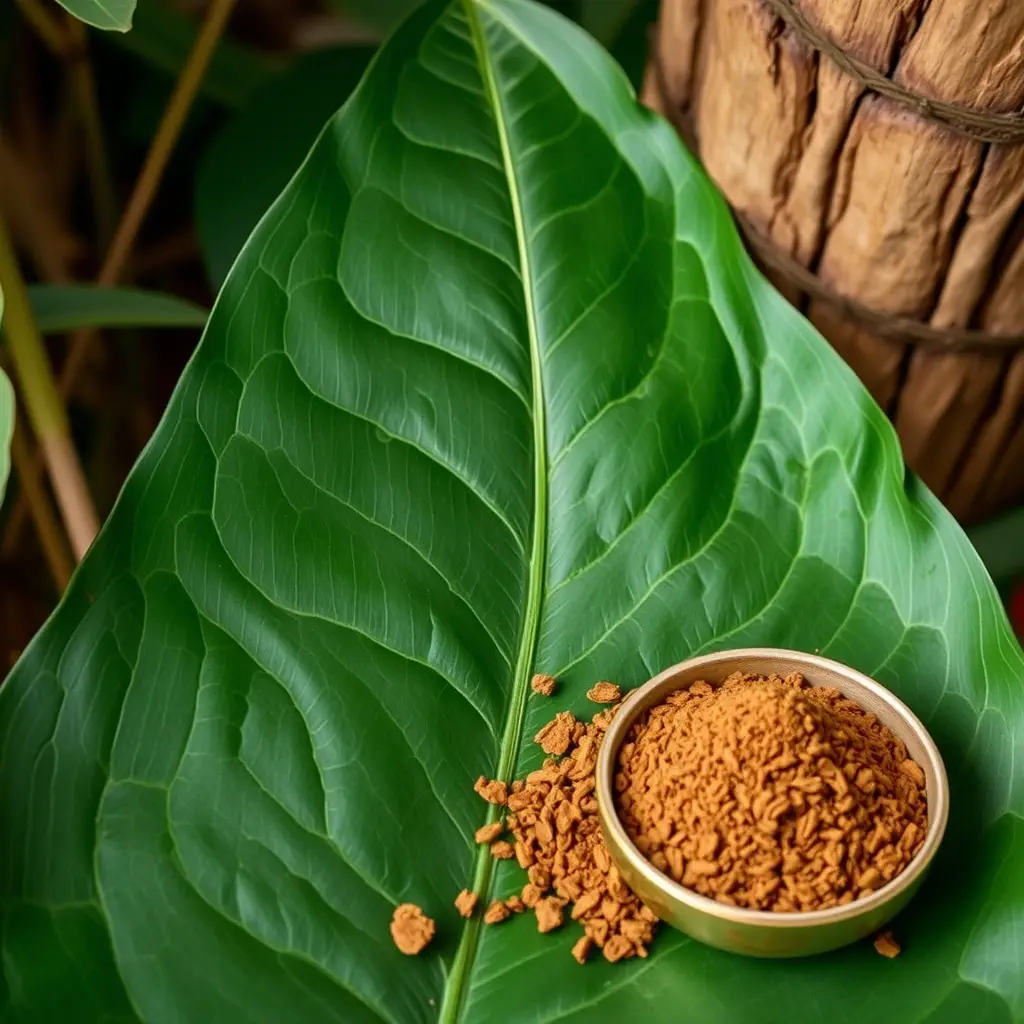Recent studies suggest that combining magnesium with kratom can enhance pain management due to their complementary effects. Magnesium, essential for biochemical reactions, supports nerve function and muscle relaxation, and has natural analgesic properties by influencing neurotransmitters like norepinephrine and serotonin. When paired with kratom's active alkaloids—mitragynine and 7-hydroxymitragynine—which engage with opioid receptors, the pain-relieving effects are amplified. This synergy may also address magnesium deficiencies that can exacerbate pain conditions. The combination offers a natural alternative to synthetic opioids and addresses both pain relief and nutritional status. However, it's important for individuals to consult healthcare professionals before using these supplements due to their potent effects and individual variability in responses. Additionally, users should be aware of the legal status of kratom in their area and monitor their health closely to avoid negative side effects. This holistic approach leverages the benefits of both substances for chronic pain management, emphasizing the importance of informed decision-making and professional guidance.
Exploring the intersection of natural remedies, this article delves into the synergistic effects of magnésium and kratom for managing pain without relying on conventional medications. By examining how these two substances can work together to alleviate chronic discomfort, we uncover a promising avenue for those seeking alternative solutions. The ensuing discussion highlights the role of magnesium in pain relief, its complementary action with kratom, and the potential benefits and risks associated with their combined use. Join us as we navigate this intricate relationship between magnésium and kratom in the realm of natural pain management.
- Unraveling the Synergy Between Magnesium and Kratom for Natural Pain Management
- Understanding the Role of Magnesium in Pain Relief and How It Complements Kratom Use
- Exploring the Potential Benefits and Risks of Combining Magnesium with Kratom Supplements for Chronic Pain Relief
Unraveling the Synergy Between Magnesium and Kratom for Natural Pain Management

Studies have begun to uncover a synergistic relationship between magnesium and kratom, both of which hold potential for natural pain management. Magnesium, an essential mineral that plays a critical role in numerous biochemical reactions within the body, has long been recognized for its analgesic properties. It serves as a cofactor for enzymes involved in the modulation of neurotransmitters such as norepinephrine and serotonin, which can influence pain perception. When combined with kratom, a plant-based supplement traditionally used in Southeast Asia for its pain-relieving effects, the analgesic potential is amplified. Kratom contains alkaloids like mitragynine and 7-hydroxymitragynine, which interact with opioid receptors in the brain, providing pain relief. The addition of magnesium may enhance this interaction, potentially due to its ability to regulate the excitatory neurotransmitter glutamate and modulate the GABAergic system, leading to a more balanced response to pain. This synergy not only offers a natural alternative to synthetic opioids but also addresses magnesium deficiency, which is prevalent in many populations and can exacerbate pain conditions. As such, integrating both magnesium and kratom supplementation may offer a comprehensive approach to managing pain naturally, with the added benefit of improving overall well-being and nutritional status. However, it is important for individuals to consult healthcare professionals before incorporating these supplements into their regimen, as individual responses can vary, and both substances can have potent effects.
Understanding the Role of Magnesium in Pain Relief and How It Complements Kratom Use

Magnesium, an essential mineral that plays a pivotal role in numerous biological functions within the human body, has been increasingly recognized for its potential to complement natural pain management strategies, such as kratom supplement use. This nutrient is integral to maintaining muscle and nerve function, supporting energy production, and regulating various enzymes and neurotransmitters that can influence our experience of pain. Clinical studies have indicated that magnesium deficiency may exacerbate pain conditions, including chronic back pain, headaches, and fibromyalgia, suggesting that adequate levels of this mineral could be beneficial in alleviating such discomforts. The mechanisms behind magnesium’s role in pain relief are multifaceted; it modulates nerve signal transmission, influences the body’s stress response by binding to receptors that mediate pain perception, and helps regulate the inflammatory response. When combined with kratom supplements, which contain mitragynine and 7-hydroxymitragynine, compounds known for their analgesic properties, magnesium may further enhance pain management effects by optimizing neuronal function and reducing muscle spasms that can accompany painful conditions. This synergistic effect provides a holistic approach to pain relief, potentially leading to reduced reliance on pharmaceutical options and offering a more natural alternative for managing chronic or acute pain. Users of kratom may benefit from ensuring they maintain an adequate magnesium intake through diet or supplementation to optimize the analgesic effects of kratom and promote overall health and well-being.
Exploring the Potential Benefits and Risks of Combining Magnesium with Kratom Supplements for Chronic Pain Relief

Kratom, derived from the leaves of the Mitragyna speciosa tree, has garnered attention in natural pain management circles for its potential analgesic properties. When combined with magnesium, an essential mineral involved in over 300 biochemical reactions in the body, the synergistic effect may offer enhanced pain relief for those suffering from chronic conditions. Magnesium plays a crucial role in nerve function, muscle relaxation, and the production of energy, all of which can be compromised in chronic pain disorders. Its inclusion with kratom supplements may amplify the analgesic effects while also addressing any musculoskeletal issues that accompany persistent pain. However, this combination is not without its considerations. It’s important to approach such a regimen with caution, as both substances can have significant impacts on the body. Proper dosing and monitoring are essential to avoid adverse effects. Additionally, individuals should be aware of the legal status of kratom in their jurisdiction, as it varies across different regions, and consult with healthcare professionals before integrating this combination into their pain management strategy. The potential benefits of combining magnesium with kratom for chronic pain relief are promising; however, a careful and informed approach is necessary to navigate the risks and ensure the safest and most effective use of these supplements.
In conclusion, the synergistic potential between magnesium and kratom presents a promising avenue for natural pain management. The article has delved into the intricate mechanisms by which these supplements may complement each other, offering a dual-pronged approach to addressing chronic pain. While it is crucial to weigh the benefits against the risks and to consult healthcare professionals before integrating such supplements into one’s wellness regimen, the evidence suggests that the combination of magnesium with kratom could be a beneficial strategy for those seeking alternative methods of pain relief. Prospective studies are necessary to further elucidate this relationship and its implications for long-term health outcomes. With careful consideration and professional guidance, individuals may find this combination to be a valuable addition to their pain management toolkit.






